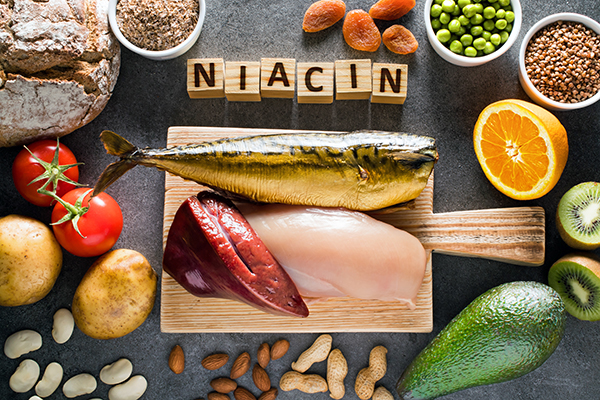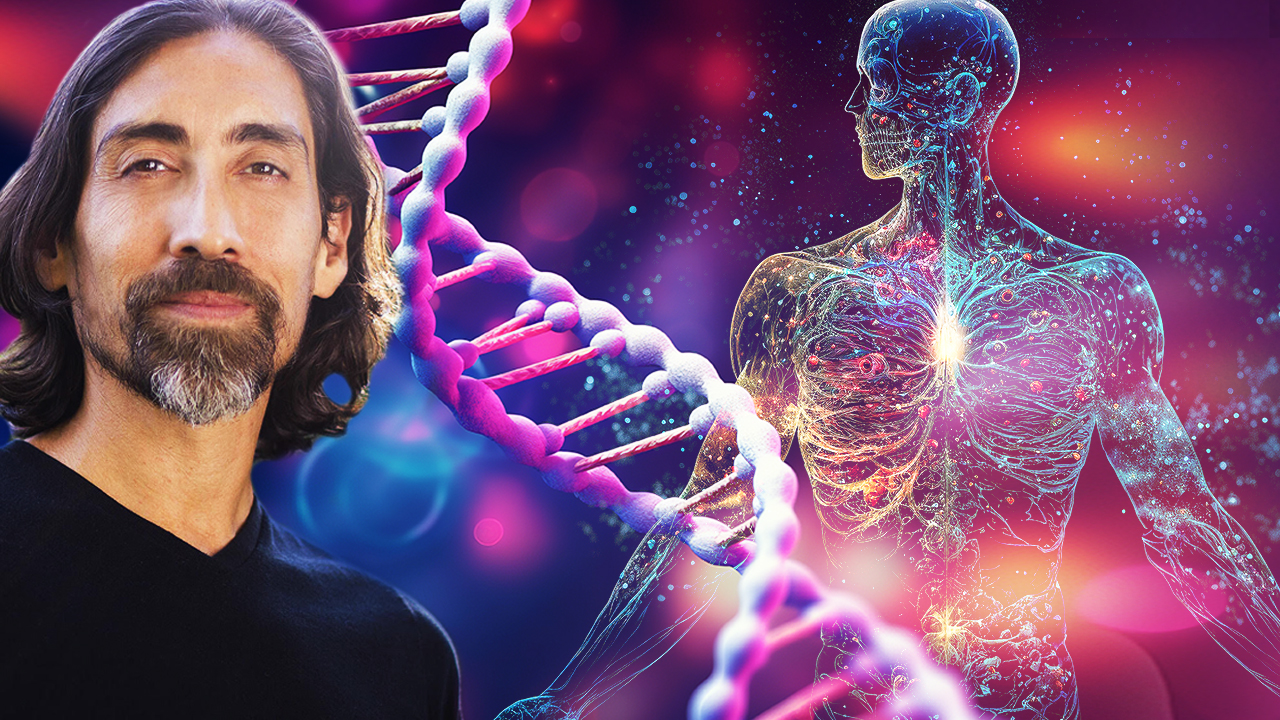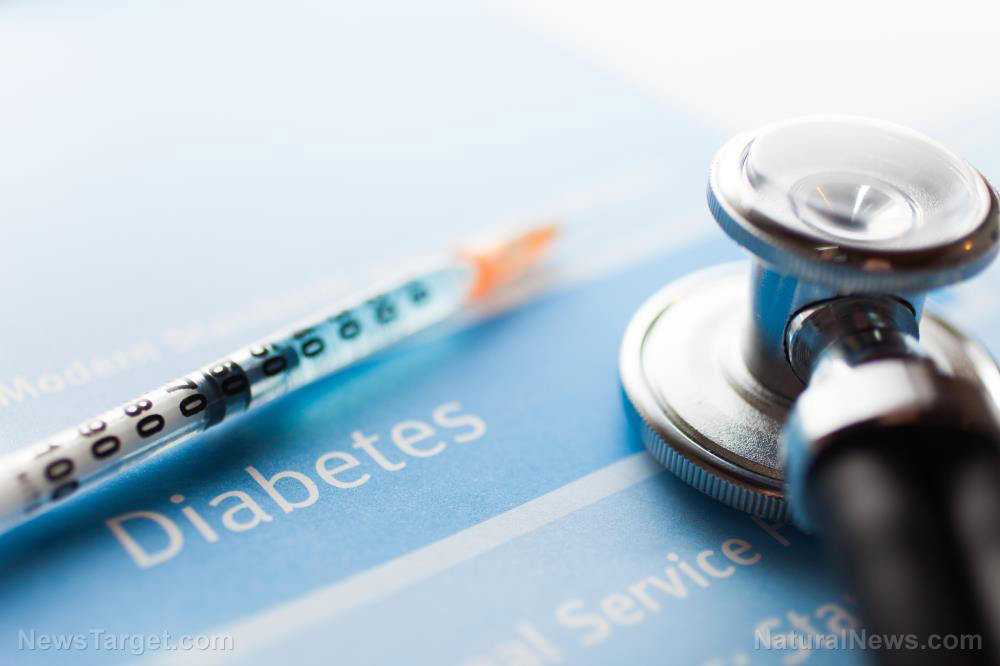Niacin found to help prevent COVID, reduce heart disease risk and support overall health and well-being
08/04/2023 / By Zoey Sky

Studies have shown that niacin, a relatively unknown vitamin, offers many health benefits.
In the second edition of the book “Niacin: The Real Story,” Dr. Andrew Saul wrote that orthomolecular physicians have discovered that the vitamin can help prevent heart disease and reverse arthritis.
Niacin was also found to protect against Alzheimer’s disease and address mental illnesses.
Dr. Saul is one of the principal authors of the book and the late Dr. Abram Hoffer, a psychiatrist who treated many patients with niacin, is credited as the lead author.
COVID-19 and kidney disease
In a 2020 study published in the journal Kidney360, researchers found that niacin (vitamin B3) could help reduce mortality in Wuhan coronavirus (COVID-19) patients suffering from acute kidney injury.
Patients who received daily doses of 1,000 milligrams of niacinamide, a form of niacin, had a 25 percent lower death rate than patients who did not. To date, this COVID-related illness has no known cure.
Doctors in India also reported that niacinamide supplements can reduce the recovery time of COVID-19 patients by as much as 30 percent compared to those receiving only standard care. This makes niacinamide an effective supportive treatment and preventive measure against COVID infection.
Dr. Todd Penberthy, the author of the chapter on COVID-19 in the niacin book, has been researching niacin and its beneficial properties for 23 years. He believes that niacin can help reverse chronic kidney disease based on studies.
The human body converts niacin to nicotinamide adenine dinucleotide (NAD). NAD is a coenzyme found in every living cell and works with enzymes to facilitate chemical reactions that help produce energy.
Viral diseases like COVID-19 trigger an immune response that depletes NAD in infected cells. Without NAD, cells will die in 30 seconds.
Penberthy said people can boost their NAD levels by taking high doses of niacin.
Diabetes and heart disease
Because NAD is required for more than 400 gene functions, the vitamin’s effects can help change the course of today’s most prevalent diseases.
If you have diabetes or heart disease, niacin could be an important supplement to take, said Penberthy.
Niacin has been studied for more than 50 years and many clinical trials have shown its usefulness in preventing heart disease, the number one cause of death in people with diabetes. Niacin can also help boost your insulin sensitivity. (Related: 4 Reasons to take Vitamin B3 every day.)
Because niacin has an incredible safety record, Penberthy isn’t worried about side effects. According to Penberthy, vitamin B3 is “unparalleled in its ability to safely reduce cardiovascular disease risk.”
Niacin for longer life
In 2006, Mary MacIsaac from Saskatchewan, Canada, died at the age of 112.
MacIsaac was the second oldest Canadian resident at the time. According to reports, she skied cross-country and rode horses until she was 110. She was sprightly and even played the piano up until her death.
MacIsaac had a clear mind until she died and attributed her longevity to niacin, which she took for her final 40 years.
While many studies have proven that a balanced diet and vitamins promote health, the role of vitamin B3 in promoting longevity isn’t as well-known or accepted.
Niacin can inhibit the formation of plaque in the arteries, protecting the heart and brain. Advocates of niacin believe that it has the best record for lowering cholesterol, triglycerides and lipoprotein (a). Niacin can also help elevate blood levels of high-density lipoprotein (HDL) cholesterol, the “good” cholesterol.
Additionally, niacin has anti-aging properties that work at the cellular level. Because many deaths are the result of damage to neurons and blood vessels, the preventive effects of niacin qualify it as an anti-aging nutrient.
Niacin supports optimal mental and physical health
An epidemic of pellagra, a health issue characterized by dementia, dermatitis, diarrhea and death, ravaged the U.S. in the 1930s and early 40s. Research revealed that vitamin B3 deficiency was the root cause of it.
There were about three million cases of pellagra, with about 100,000 reported deaths. This disease was more frequent among impoverished Southerners, who died at a higher rate than residents of any other region.
After the federal government mandated adding vitamin B3 to flour, the pellagra epidemic ended.
In the early 1950s, Hoffer discovered that the psychosis linked to mental illnesses such as schizophrenia was similar to the psychosis diagnosed in pellagra patients. He then conducted a series of double-blind, placebo-controlled studies on non-chronic patients.
The results of Hoffer’s studies showed that administering niacin doubled the recovery rate of patients compared to those who were given placebos.
You can support your overall health and well-being by taking niacin supplements and eating foods rich in niacin like chicken breast, liver, salmon, tuna and turkey.
Watch the video below for more information on how niacin can support brain health.
This video is from the Holistic Herbalist channel on Brighteon.com.
More related stories:
Here are 4 good reasons to eat bananas every day.
Dietary niacin intake affects risk of hip fracture, hip bone mineral density.
Vitamin D at 50,000 IU per day could have saved 116,000 American lives lost during covid.
Sources include:
Submit a correction >>
Tagged Under:
#nutrition, alternative medicine, covid-19, food cures, food is medicine, food science, health science, heart disease, heart health, infections, mental health, natural cures, natural health, natural medicine, niacin, nicotinamide, nutrients, outbreak, pandemic, pellagra, prevention, supplements, vitamin B3
This article may contain statements that reflect the opinion of the author
RECENT NEWS & ARTICLES
COPYRIGHT © 2017 NATURAL CURES NEWS




















